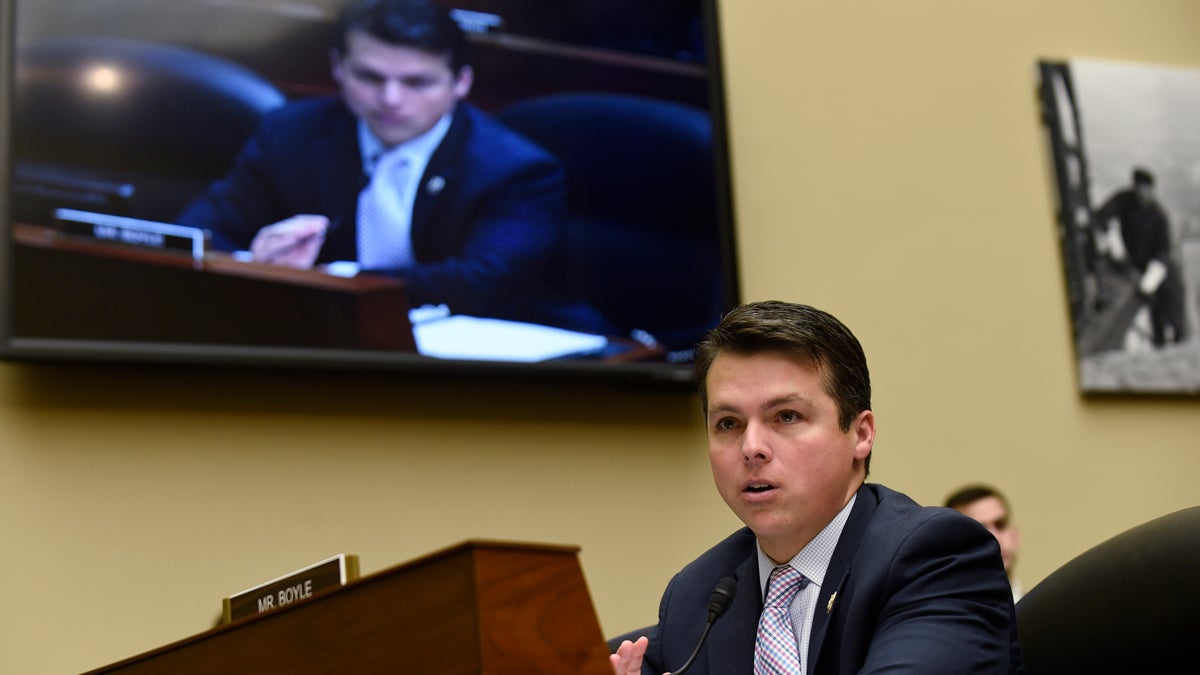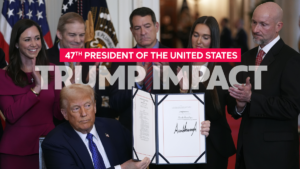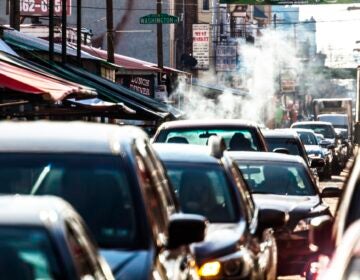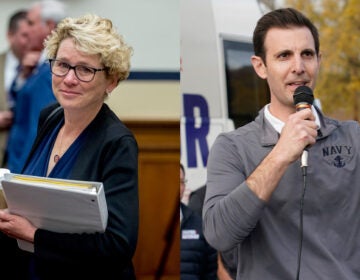Area U.S. lawmakers weigh in on Trump ‘sanctuary city’ sanctions
Listen
But Philadelphia U.S. Rep. Brendan Boyle and other Democrats say that, even if "sanctuary city" polices were reversed, it would not make the country safer. (AP file photo)
One of President Donald Trump’s first official acts was signing an executive order to block funding to cities and counties that are accused of harboring undocumented workers.
On Monday, the Department of Homeland Security released a list of those locales. Among them are four jurisdictions in New Jersey and 15 in Pennsylvania, including Philadelphia and the four counties surrounding the city.
But Philadelphia U.S. Rep. Brendan Boyle and other Democrats say that, even if cities reversed their policies, it would not make the country safer.
“There’s no question — if you look at the executive order, if you look at the discussion on sanctuary cities — this has all largely been symbolic,” Boyle said. “Take, for example, the executive order. That would not have affected one of the 19 Sept. 11 hijackers.
“That would not have prevented one terrorist attack from happening in the United States between 2001 and today.”
Boyle’s position may be different from many Democrats; he disagrees with Philadelphia’s policy that officials only cooperate with immigration agents when they produce a judge’s warrant.
“We shouldn’t have immigration policy set by any municipality or any state. We can’t have immigration policy set by Arizona, Texas, or any city,” he said. “It’s best done at the federal level. And to do the best they can, you should have coordination among federal, state, and local officials.”
Still, Boyle called the administration’s threat and attempts to block large cities from getting federal dollars counterproductive.
“The idea that you’re going to strip funding or eliminate deep amounts of funding that goes to Philadelphia for police, for fire — we’re talking about tens of millions of dollars,” he said. “That would do nothing but jeopardize the citizens of my city.”
Many Republicans disagree, including U.S. Rep. Ryan Costello who represents the suburbs west of Philadelphia.
“Well, the counterargument to that would be by not enforcing existing law and thereby becoming a sanctuary city, you’re creating a more dangerous environment,” he said. “So, certainly, the argument has some merit in the first instance, but I do think that the counterargument is the more compelling one.”
But Costello is not pushing as hard on the subject as many Republicans, in part because he doesn’t want to see Philadelphia lose resources to combat crime.
“I think everybody would like to see existing law enforced and not have cities lose very important criminal justice money,” he said. “As a Republican that represents suburban Philadelphia, I’m very sensitive to that argument.”
The wall waits in the wings
While Trump tries to coerce sanctuary cities to comply with federal immigration statutes, U.S. Rep. Leonard Lance, a Central New Jersey Republican, said he wishes the administration would consider taking a different approach.
“I would hope that the administration might use the carrot, but I don’t think that cities should have their own immigration policy,” he said. “I think that’s a matter to be decided by the Congress of the United States.”
But Lance said the president’s tough rhetoric on illegal immigration seems to be having an impact because reports are that illegal border crossings are down 40 percent this year.
“I am pleased that the numbers who are crossing the border from Mexico to the United States illegally are down, and I think it has to do with the president indicating he wants to become more serious about that issue,” he said.
The next battle over immigration will focus on Trump’s request for money to build a wall along hundreds of miles of the border with Mexico. That project is estimated to cost as much as $21 billion. While many Republicans support the president’s goal, Lance and others are not enthusiastic.
“I believe we need to enhance security at the border,” he said. “I’m not sure we need a wall in all places.”
Senate Democrats are vowing to block a “must-pass” bill to fund the government after April 28 if it includes money for a border wall. They have not made any similar threats to block attempts to cut off funds for sanctuary cities.
WHYY is your source for fact-based, in-depth journalism and information. As a nonprofit organization, we rely on financial support from readers like you. Please give today.





